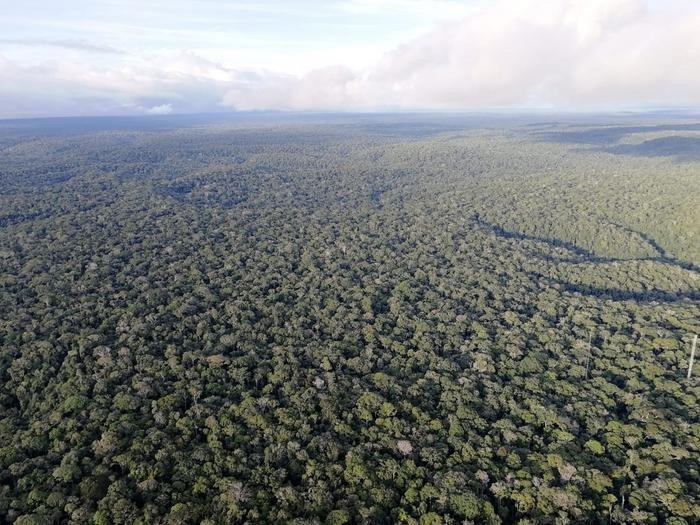A recent study reveals that Amazon deforestation leads to an increase in temperature for land surfaces located up to 100 km away.

The Amazon Forest Seen From The Amazon Tall Tower Observatory, A Scientific Research Facility In The Amazon Rainforest Of Brazil. Image Credit: Dr Jess Baker, University Of Leeds
Conducted by a collaborative team of British and Brazilian scientists, with Dr Edward Butt from the University of Leeds leading the effort, the research highlights the vital role of tropical forests in cooling the land surface, a phenomenon that extends over significant distances.
It is well-documented that the removal of tropical forests leads to local climate warming.
In this recent investigation, the scientists aimed to determine whether Amazon deforestation had broader implications for climate warming in more distant areas. The study scrutinized the influence of forest loss on locations up to 100 km away.
Critical Importance
Understanding the impact of forest loss in the Amazon is of critical importance. The world is getting warmer as a result of climate change. It is important that we understand how deforestation of the Amazon ecosystem is contributing to climate warming. If deforestation is warming surrounding regions, this would have big implications for people living in those areas.
Dr. Edward Butt, Research Fellow, School of Earth and Environment, University of Leeds
The study was published in the National Academy of Sciences on October 30, 2023. The scientists united satellite data of land surface temperature and deforestation in the Amazon from 2001 to 2020.
From the statistics of 3.7 million locations across the Amazon basin, scientists related the warming that happened over regions with different amounts of local and regional forest loss.
The scientists categorized deforestation within 2 km of a data collection point as local, and from 2 km to 100 km as regional.
Cumulative Impact of Regional Forest Loss
Upon analyzing the data, the researchers discovered that in regions characterized by minimal local and regional deforestation, the average land temperature change from 2001 to 2021 was 0.3 °C. Conversely, areas with significant local deforestation (40% to 50%) but limited regional deforestation experienced an average temperature increase of 1.3 °C.
In both areas, the average temperature increase is evaluated to be 4.4 °C with local and regional deforestation.
Researchers add, “The regional warming due to Amazon deforestation will have negative consequences for the 30 million people living within the Amazon basin, many of whom are already exposed to dangerous levels of heat.”
Impact of Amazon Deforestation
The researchers investigated how the upcoming forest loss might warm the Brazilian Amazon over 30 years from 2020 based on the two circumstances, one where the Forest Code is unnoticed and protected areas not safeguarded, and the other, where there is some guard in place.
By decreasing the forest loss in the southern Amazon, where the forest loss is more, the upcoming warming can be decreased by more than 0.5 °C in Mato Grosso state. It is considered a great advantage.
It is well known that protecting tropical forests is crucial in the fight against global climate change. Our work shows that protecting forests will also have big benefits at a local, regional, and national scale.
Dominick Spracklen, Study Co-Author and Professor, University of Leeds
He adds, “We show that reducing deforestation would reduce future warming across the southern Amazon. This would benefit people living across the region through reducing heat stress and reducing the negative impacts on agriculture.”
“In Brazil, studies on the importance of conserving forests for carbon storage are common, but we still lack studies on their biophysical effects. This is important because the Amazon is warming rapidly due to climate change, and now exacerbated by deforestation,” stated Dr. Celso von Randow.
New efforts to control deforestation across the Brazilian Amazon have been successful and deforestation rates have declined over the last year, and now we see benefits of possibly reducing the warming affecting people living in this region. Recognizing such benefits will hopefully result in more widespread support for continued efforts to reduce deforestation and protect forests.
Dr. Celso von Randow, Researcher and Study Co-Author, Brazilian National Institute for Space Research
Journal Reference
Butt, W., E., et al. (2023). Amazon deforestation causes strong regional warming. Proceedings of the National Academy of Sciences. doi.org/10.1073/pnas.2309123120.
Source: https://www.leeds.ac.uk/